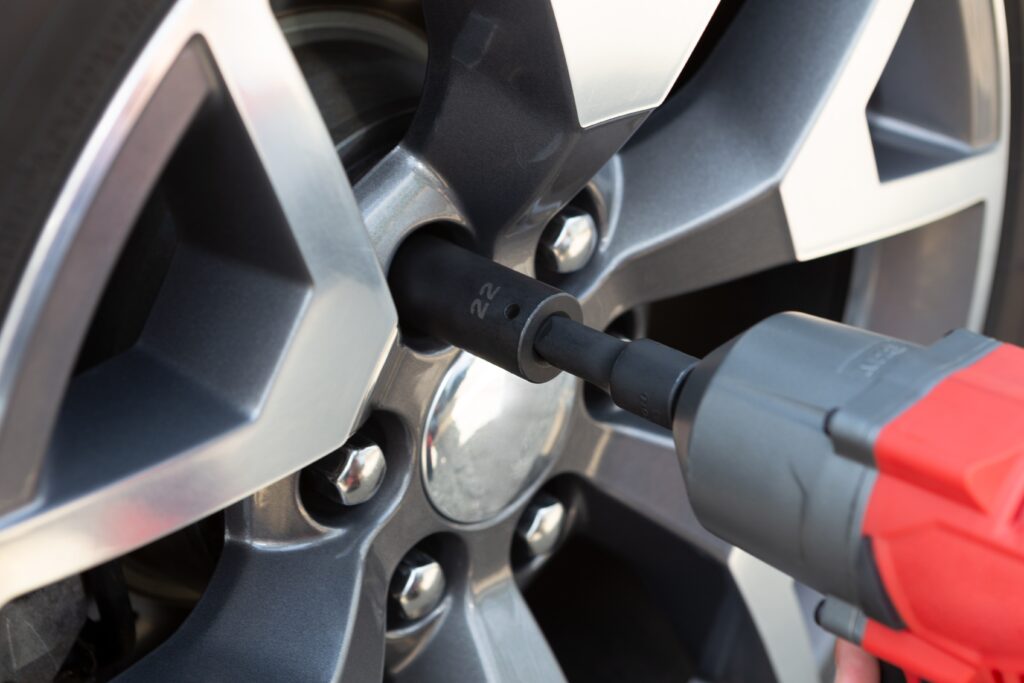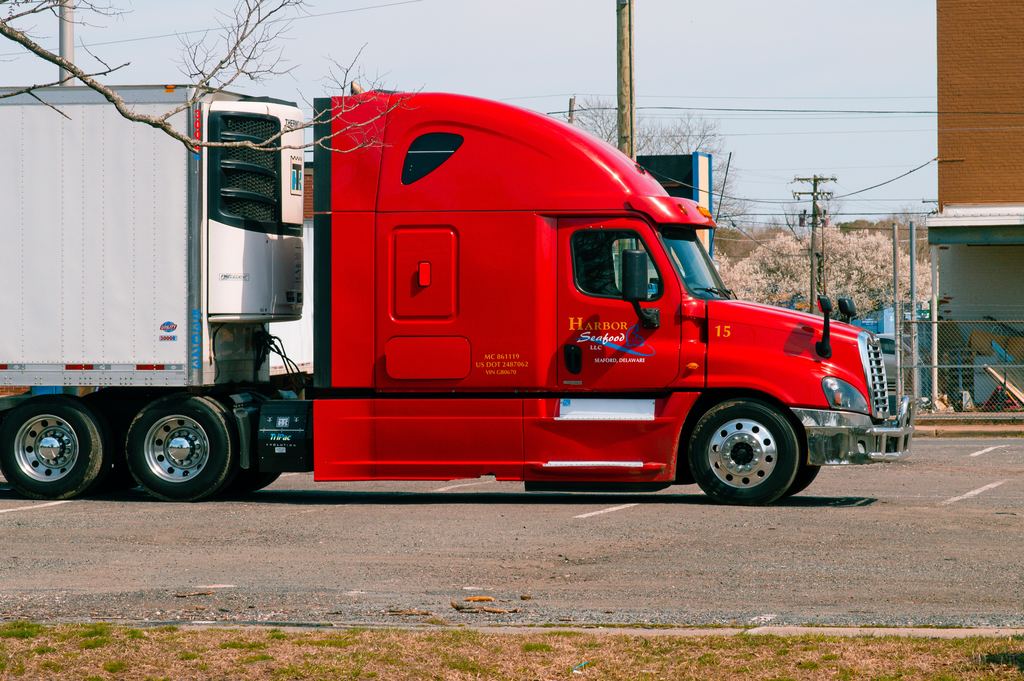
Welcome to Revive Your Wheels, your ultimate resource for all things related to vehicle and truck repair, as well as engine maintenance. Whether you’re a seasoned car enthusiast or a truck owner seeking expert advice, our blog is here to provide you with comprehensive information and tips to keep your wheels running smoothly and efficiently.
At Revive Your Wheels, we understand the importance of maintaining your vehicles and trucks in top condition. Regular repair and engine maintenance not only prolong the lifespan of your vehicles but also ensure optimal performance, safety, and fuel efficiency. Our team of experienced automotive enthusiasts and mechanics is dedicated to sharing their knowledge and expertise to help you revitalize your wheels and keep them in pristine shape.
Our Blog Covers a Wide Range of Topics, Including:
1. Vehicle and Truck Repair: From common mechanical issues to troubleshooting tips, we provide detailed guidance on diagnosing and repairing various vehicle and truck problems. Whether it’s addressing engine malfunctions, brake issues, suspension problems, or electrical faults, our articles will equip you with the knowledge needed to tackle repairs efficiently and cost-effectively.
2. Engine Maintenance: The heart of any vehicle is its engine, and proper maintenance is crucial to ensure its longevity and performance. Our blog offers valuable insights into engine care, including oil changes, filter replacements, spark plug maintenance, timing belt inspections, and more. We also explore advanced topics like fuel system cleaning, emissions control, and optimizing engine performance.
3. Preventive Maintenance: Regular maintenance is key to avoiding costly repairs and breakdowns. We provide comprehensive preventive maintenance guides, covering topics such as fluid checks and replacements, tire maintenance, battery care, and overall vehicle inspections. By following our maintenance tips, you can stay ahead of potential issues and keep your wheels rolling smoothly.
4. DIY Tips and Tricks: We understand that many car and truck owners enjoy getting their hands dirty and performing repairs and maintenance themselves. Our blog features a range of DIY tips and tricks, from simple tasks like changing wiper blades and replacing air filters to more advanced projects like brake pad replacement and engine component upgrades. We provide step-by-step instructions, safety precautions, and recommended tools to empower you to tackle projects confidently.
5. Industry News and Trends: Stay up to date with the latest automotive industry news, technological advancements, and emerging trends. We cover topics such as hybrid and electric vehicle developments, autonomous driving technologies, eco-friendly innovations, and more. Our aim is to keep you informed about the evolving automotive landscape and how it impacts vehicle repair and engine maintenance.
Revive Your Wheels – Your Trusted Automotive Resource:
At Revive Your Wheels, we strive to be your go-to source for comprehensive information on vehicle and truck repair, as well as engine maintenance. Our team is passionate about automobiles and dedicated to providing accurate, reliable, and up-to-date content. Whether you’re a DIY enthusiast, a professional mechanic, or simply a vehicle owner looking for practical tips, our blog is here to support you on your automotive journey.
Explore our articles, guides, and tutorials to empower yourself with the knowledge needed to revive your wheels and keep them running smoothly. Be sure to subscribe to our newsletter to receive regular updates and exclusive content. Join our vibrant community of automotive enthusiasts and let’s embark on a journey to revitalize and maintain our wheels together.
Revive Your Wheels: Empowering You to Take Control of Your Vehicle and Truck Repair, and Engine Maintenance.
- Optimizing Vehicle Upkeep: A Comprehensive Guide to Repair and Maintenance

Introduction: Paving the Way for Sustainable Vehicle and Truck Maintenance
Navigating through the myriad aspects of vehicle and truck repair and maintenance requires a blend of preventive strategies and reliable crisis management solutions like towing during unforeseen breakdowns. This article journeys through the essential aspects of maintaining vehicular longevity, interweaving regular upkeep practices with adept management of unexpected repair requirements.
Emergency Readiness: Navigating Through Unexpected Breakdowns with Towing Services
Despite stringent maintenance, vehicles and trucks may encounter unforeseen breakdowns, making the role of a credible towing service indispensable. Ensuring safe transport to an appropriate repair facility, a robust towing service not only safeguards against potential transit damages but also provides an immediate lifeline in the face of unexpected vehicular issues.
Staying Prepared On the Move: Roadside Assistance for Immediate Support
In instances of minor breakdowns or on-the-road issues that don’t warrant a full-fledged tow, roadside assistance serves as an immediate savior. From addressing flat tires to rectifying minor electrical glitches, efficient roadside assistance provides a swift solution, ensuring that drivers can either proceed with their journey or be escorted to a nearby repair facility with minimal disruption.
Proactive Vehicle Care: Ensuring Longevity Through Regular Maintenance
Shifting from a reactive to a preventative maintenance approach, adherence to a regular vehicle and truck upkeep schedule significantly mitigates unexpected breakdowns. Consistent routine checks, spanning engine health, tire pressure, and brake functionality, not only enhance vehicle performance but also preclude unforeseen repairs, endorsing both longevity and sustained vehicular performance.
Conclusion: The Road Ahead for Sustained Vehicle and Truck Performance
The journey towards enduring vehicle and truck ownership melds a commitment to consistent maintenance and the assurance of reliable towing and roadside assistance services. Striking a balance between preventative strategies and effective emergency response is pivotal to ensure seamless, uninterrupted journeys, and enduring vehicular utility and performance. Tailoring these strategies to individual and fleet vehicular needs is imperative to navigate the intricacies of vehicle and truck ownership and operation efficiently.
©2023 Vehicle Upkeep Essentials. All Rights Reserved.
- Gearing Up for the Heavy Lifters: Unveiling the Capabilities of Trucks in Heavy-Duty Work

The success of many businesses depends largely on the capability to transport heavy goods and materials from one location to another. The role of heavy-duty trucks in such operations is invaluable. These powerful machines are the linchpins of industries like construction, mining, and logistics, capable of handling arduous tasks with ease. This article aims to shed light on the capabilities of trucks in heavy-duty work.
The Unseen Heroes: Heavy-Duty Trucks
Heavy-duty trucks are specifically designed to transport heavy loads over large distances. With robust engines, reinforced chassis, and enhanced suspension systems, these vehicles are capable of carrying thousands of pounds of weight, making them an integral part of industries that require heavy lifting and transport.
Payload and Towing Capabilities
Payload refers to the maximum weight a truck can carry in its cabin and cargo bed, while towing capacity is the maximum weight it can pull. The payload and towing capacities define the truck’s utility in heavy-duty work.
Heavy-duty trucks, such as the three-quarter-ton and one-ton trucks, boast impressive payload and towing capacities. These trucks are designed to handle loads ranging from 10,000 pounds to over 30,000 pounds, allowing businesses to move heavy equipment, construction materials, or large quantities of goods with relative ease.
Power and Performance
Under the hood of every heavy-duty truck lies an engine built to withstand demanding tasks. Most heavy-duty trucks are powered by high-performance diesel engines, known for their excellent torque ratings, fuel efficiency, and durability. These engines allow trucks to carry heavy loads over long distances without compromising performance or reliability.
Versatility and Customization
Beyond payload and towing capabilities, heavy-duty trucks offer the advantage of versatility. They come in various configurations, including flatbeds, dump trucks, or mixer trucks, each designed to serve a particular purpose.
Furthermore, these trucks can be customized to meet specific industry needs. This includes adding toolboxes, cargo management systems, or specialized equipment like winches or crane attachments. The versatility and customization possibilities make heavy-duty trucks a valuable asset to diverse industries.
Durability and Lifespan
Heavy-duty trucks are built to last. They feature robust construction and durable materials designed to withstand the rigors of heavy lifting and towing. Regular maintenance can further extend their lifespan, ensuring these vehicles serve your business for many years.
Safety Considerations
The sheer size and power of heavy-duty trucks also necessitate advanced safety features. These can include advanced braking systems, stability control, and driver-assist technologies like blind-spot monitoring and rearview cameras. These safety features are crucial when maneuvering large, heavy vehicles, especially in crowded urban environments.
Conclusion
The capabilities of heavy-duty trucks extend beyond their size and power. With impressive payload and towing capacities, customizable features, and durability, these vehicles play a critical role in various industries. They enable businesses to transport heavy loads efficiently, navigate challenging job sites, and carry out demanding tasks with relative ease.
While investing in a heavy-duty truck is a significant business decision, the value these vehicles bring to heavy-duty work can result in considerable long-term benefits. They are, without a doubt, the unsung heroes that help power our economy, facilitating the smooth running of sectors from construction to logistics and beyond. Whether you’re involved in heavy-duty work or merely interested in the behind-the-scenes operations of these industries, understanding the capabilities of these robust machines offers fascinating insights.
- From Engine to Exhaust: A Comprehensive Blog on Truck Repair and Upkeep

Introduction:
Trucks are the workhorses of various industries, from transportation and logistics to construction and agriculture. Just like any vehicle, trucks require regular maintenance and repair to ensure optimal performance, longevity, and safety on the road. In this blog post, we will delve into the world of truck repair and upkeep, covering essential aspects such as engine maintenance, brake systems, exhaust systems, and general maintenance practices that every truck owner should be familiar with.
Engine Maintenance:
The engine is the heart of any truck, and proper maintenance is vital to keep it running smoothly and efficiently. Here are key engine maintenance practices:
- Regular Fluid Checks and Changes:
Monitor essential fluids such as engine oil, coolant, transmission fluid, and brake fluid regularly. Ensure they are at the correct levels and change them at the recommended intervals to prevent engine damage and maximize performance. - Air and Fuel Filters:
Clean or replace air filters regularly to maintain optimal air intake and prevent dirt and debris from entering the engine. Similarly, ensure fuel filters are clean and functioning properly to ensure efficient fuel combustion. - Belt and Hose Inspection:
Check belts and hoses for signs of wear, cracks, or leaks. Replace them if necessary to avoid engine overheating or other potential issues.
Brake Systems:
Maintaining a truck’s brake system is crucial for the safety of both the driver and other road users. Here are key brake system maintenance practices:
- Regular Brake Inspections:
Regularly inspect brake pads, rotors, calipers, and brake lines for wear, corrosion, or damage. Replace worn-out components promptly to ensure optimal braking performance. - Brake Fluid Flush:
Flush the brake fluid according to the manufacturer’s recommended schedule. Old or contaminated brake fluid can compromise brake performance and lead to brake failure.
Exhaust Systems:
The exhaust system plays a crucial role in reducing emissions, improving fuel efficiency, and minimizing noise. Proper maintenance is essential to ensure the exhaust system’s efficiency and longevity:
- Regular Inspection:
Inspect the exhaust system for leaks, rust, or damage. Address any issues promptly to prevent toxic fumes from entering the cabin and to maintain compliance with emissions regulations. - Muffler and Catalytic Converter Maintenance:
Ensure the muffler and catalytic converter are in good condition and functioning correctly. A malfunctioning catalytic converter can lead to increased emissions and decreased fuel efficiency.
General Maintenance Practices:
In addition to specific areas, general maintenance practices are crucial for overall truck upkeep. Here are some key practices:
- Tire Care:
Regularly check tire pressure, rotate tires, and ensure proper alignment. Proper tire maintenance ensures optimal fuel efficiency, traction, and safety. - Battery Maintenance:
Inspect the battery regularly for signs of corrosion or wear. Clean the terminals, check the charge, and replace the battery if necessary. - Fluid Leaks:
Regularly check for fluid leaks, including oil, coolant, transmission fluid, or brake fluid. Address any leaks promptly to prevent damage to components and maintain proper fluid levels.
Conclusion:
Proper truck repair and upkeep are essential for the performance, longevity, and safety of your vehicle. By adhering to regular maintenance practices, such as engine maintenance, brake system checks, exhaust system upkeep, and general maintenance, you can ensure your truck operates at its best.
Remember, staying proactive with maintenance helps prevent costly repairs, reduces downtime, and ensures the safety of both the driver and others on the road. If you’re unsure about any aspect of truck repair or maintenance, consult a trusted mechanic or refer to the manufacturer’s guidelines.
Investing time and effort in maintaining your truck pays off in the long run, allowing you to get the most out of your vehicle and keep it running smoothly for years to come.
- Regular Fluid Checks and Changes:
- The Power of 18-Wheeler Towing: Trucks and Engines for Heavy-Duty Hauling

Introduction:
When it comes to hauling large loads over long distances, 18-wheelers are the workhorses of the road. These powerful vehicles require robust trucks and engines specifically designed to handle the demands of heavy-duty towing. In this blog post, we will explore the world of 18-wheeler towing, discussing the types of trucks and engines required for this challenging task. Whether you’re a trucking enthusiast or considering a career in the transportation industry, understanding the equipment involved is essential.
The Role of 18-Wheeler Towing:
18-wheeler towing involves hauling significant loads, typically in the form of trailers or containers, using a combination of a tractor unit and a semi-trailer. These massive rigs are commonly used in the shipping, logistics, and transportation industries to move goods across long distances efficiently. To handle these demanding tasks, specific trucks and engines are required, ensuring optimal performance, power, and reliability.
Types of Trucks for 18-Wheeler Towing:
1. Class 8 Trucks: Class 8 trucks, also known as semi-trucks or tractor-trailers, are the primary choice for 18-wheeler towing. These trucks feature a heavy-duty chassis, multiple axles, and a fifth wheel coupling that connects the tractor unit to the trailer. Class 8 trucks offer exceptional towing capacity, stability, and maneuverability required for long-haul journeys.
2. Cab Styles: Class 8 trucks come in various cab styles, including conventional cabs (also known as day cabs) and sleeper cabs. Conventional cabs are designed for shorter distances, while sleeper cabs provide drivers with sleeping accommodations for extended trips.
3. Axle Configurations: 18-wheelers typically feature three or more axles to distribute weight evenly and provide stability. Common axle configurations include 6×4 (six-wheel drive with four powered wheels) and 6×2 (six-wheel drive with two powered wheels). The selection of the axle configuration depends on the specific needs of the hauling operation and local regulations.
4. Trailers: The trailer is a critical component of 18-wheeler towing. Depending on the cargo being transported, various types of trailers are utilized, such as flatbeds, dry vans, refrigerated trailers (reefers), tankers, or specialized trailers designed for specific goods. Each trailer type has its own specifications, and the choice depends on the nature of the cargo being transported.
Engines for 18-Wheeler Towing:
1. Diesel Engines: Diesel engines are the most common choice for 18-wheelers due to their high torque output, fuel efficiency, and durability. These engines are specifically designed to handle heavy loads and long distances. They provide the power needed for acceleration, climbing steep grades, and maintaining speed on highways. Common diesel engine manufacturers for 18-wheelers include Cummins, Detroit Diesel, and Caterpillar.
2. Horsepower and Torque: 18-wheelers require engines with substantial horsepower and torque to handle heavy loads. Horsepower determines the engine’s ability to generate power, while torque is the rotational force that enables the vehicle to move. Higher torque is particularly important for towing, as it allows the truck to overcome resistance and pull heavy trailers.
3. Transmission Systems: 18-wheelers are equipped with specialized transmissions to manage the immense power and torque of the engine. Manual transmissions with multiple gears, such as 10-speed, 13-speed, or 18-speed configurations, are commonly used. Automatic transmissions are also becoming increasingly popular, offering ease of use and fuel efficiency.
4. Fuel Efficiency and Emissions: As environmental concerns grow, truck manufacturers are continuously working to improve fuel efficiency and reduce emissions. Advanced engine technologies, such as selective catalytic reduction (SCR) and exhaust gas recirculation (EGR), are used to meet emission regulations without compromising performance.
Conclusion:
18-wheeler towing requires specialized trucks and engines capable of handling heavy loads and long distances. Class 8 trucks with their powerful engines, multiple axles, and various trailer configurations are the primary choice for this task. Diesel engines, known for their torque, fuel efficiency, and durability, dominate the industry. Understanding the equipment involved in 18-wheeler towing is crucial for trucking enthusiasts, drivers, and industry professionals. By selecting the right trucks and engines for the job, you’ll ensure efficient and reliable transportation of goods, contributing to the success of the shipping and logistics industry.
- Ready for the Fields: How to Prepare Your Truck for Heavy-Duty Farm Work

Introduction:
When it comes to heavy-duty farm work, your truck is an invaluable asset that plays a crucial role in the success of your operations. Whether it’s hauling equipment, transporting livestock, or navigating rough terrains, a well-prepared truck is essential. In this blog post, we will explore the key steps to prepare your truck for heavy-duty farm work. By following these guidelines, you’ll ensure that your truck is ready to tackle the demanding challenges of the agricultural season.
1. Inspect Your Truck:
Begin by conducting a thorough inspection of your truck. Check the overall condition, both inside and out. Look for signs of wear, rust, or damage on the body, frame, and undercarriage. Inspect the tires for proper tread depth and any signs of wear or punctures. Pay close attention to the suspension system, brakes, and steering components, ensuring they are in good working order.
2. Assess Fluid Levels and Quality:
Proper fluid levels are essential for your truck’s optimal performance during heavy-duty farm work. Check the engine oil, transmission fluid, coolant, brake fluid, power steering fluid, and windshield washer fluid levels. Additionally, evaluate the quality of the fluids by inspecting their color and consistency. If any fluids appear dirty or contaminated, it’s recommended to replace them before starting your farm work.
3. Change Filters:
Filters play a crucial role in keeping your truck’s engine and systems clean. Regularly change the engine oil filter, fuel filter, and air filter to ensure optimal engine performance and longevity. Clean filters prevent dirt and debris from entering the engine, helping to maintain its efficiency and protect critical components.
4. Ensure Adequate Cooling:
Heavy-duty farm work can put a strain on your truck’s engine, resulting in increased heat generation. It’s essential to have a properly functioning cooling system. Inspect the radiator, hoses, and coolant levels to ensure they are in good condition. Consider flushing and replacing the coolant if it hasn’t been done recently. Additionally, check the radiator fan and water pump for any signs of damage or wear.
5. Check the Electrical System:
The electrical system in your truck is vital for various functions, from lighting to powering accessories. Inspect the battery for signs of corrosion and ensure it is securely connected. Check the battery’s charge level and consider replacing it if it’s weak or nearing the end of its lifespan. Verify that all lights, including headlights, taillights, and turn signals, are functioning properly.
6. Maintain Proper Tire Pressure:
Tires are a critical component for safe and efficient operation during farm work. Check the tire pressure regularly and ensure it matches the manufacturer’s recommended specifications. Proper tire inflation promotes better fuel efficiency, improved handling, and extended tire life. Additionally, inspect the tires for any signs of damage or excessive wear. Consider rotating the tires to ensure even tread wear.
7. Lubricate Moving Parts:
Proper lubrication is essential to reduce friction and ensure smooth operation of moving parts. Apply lubricant to critical components such as hinges, door locks, suspension parts, and linkages. Regular lubrication minimizes wear and tear, enhances overall performance, and extends the lifespan of your truck’s components.
8. Equip Your Truck with Necessary Accessories:
Depending on the nature of your farm work, you may require additional accessories to enhance your truck’s capabilities. Consider investing in features such as trailer hitches, winches, bed liners, toolboxes, and towing mirrors. These accessories can improve towing capacity, provide storage for tools and equipment, and facilitate efficient transportation of farm-related items.
9. Prepare an Emergency Kit:
Heavy-duty farm work often involves remote locations or long hours on the road. It’s crucial to have an emergency kit readily available in your truck. Include essential items such as a first-aid kit, fire extinguisher, jumper cables, tire repair tools, spare fluids, and reflective safety vests. Additionally, carry extra water, food, and blankets in case of unexpected delays or emergencies.
10. Maintain Regular Maintenance:
To keep your truck in top condition throughout the farming season, adhere to a regular maintenance schedule. Follow the manufacturer’s recommendations for oil changes, filter replacements, and other routine maintenance tasks. Regular inspections and preventive maintenance will help identify potential issues early on and prevent major breakdowns that can disrupt your farm work.
Conclusion:
Preparing your truck for heavy-duty farm work is crucial for ensuring its reliability, performance, and safety during agricultural operations. By following these steps, including inspecting your truck, assessing fluid levels, changing filters, maintaining proper cooling, checking the electrical system, monitoring tire pressure, lubricating moving parts, equipping necessary accessories, preparing an emergency kit, and maintaining regular maintenance, you’ll maximize your truck’s efficiency and minimize the risk of breakdowns. A well-prepared truck will support your farm work, allowing you to tackle the demands of the season with confidence and efficiency.